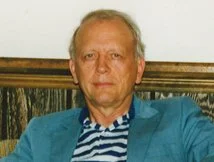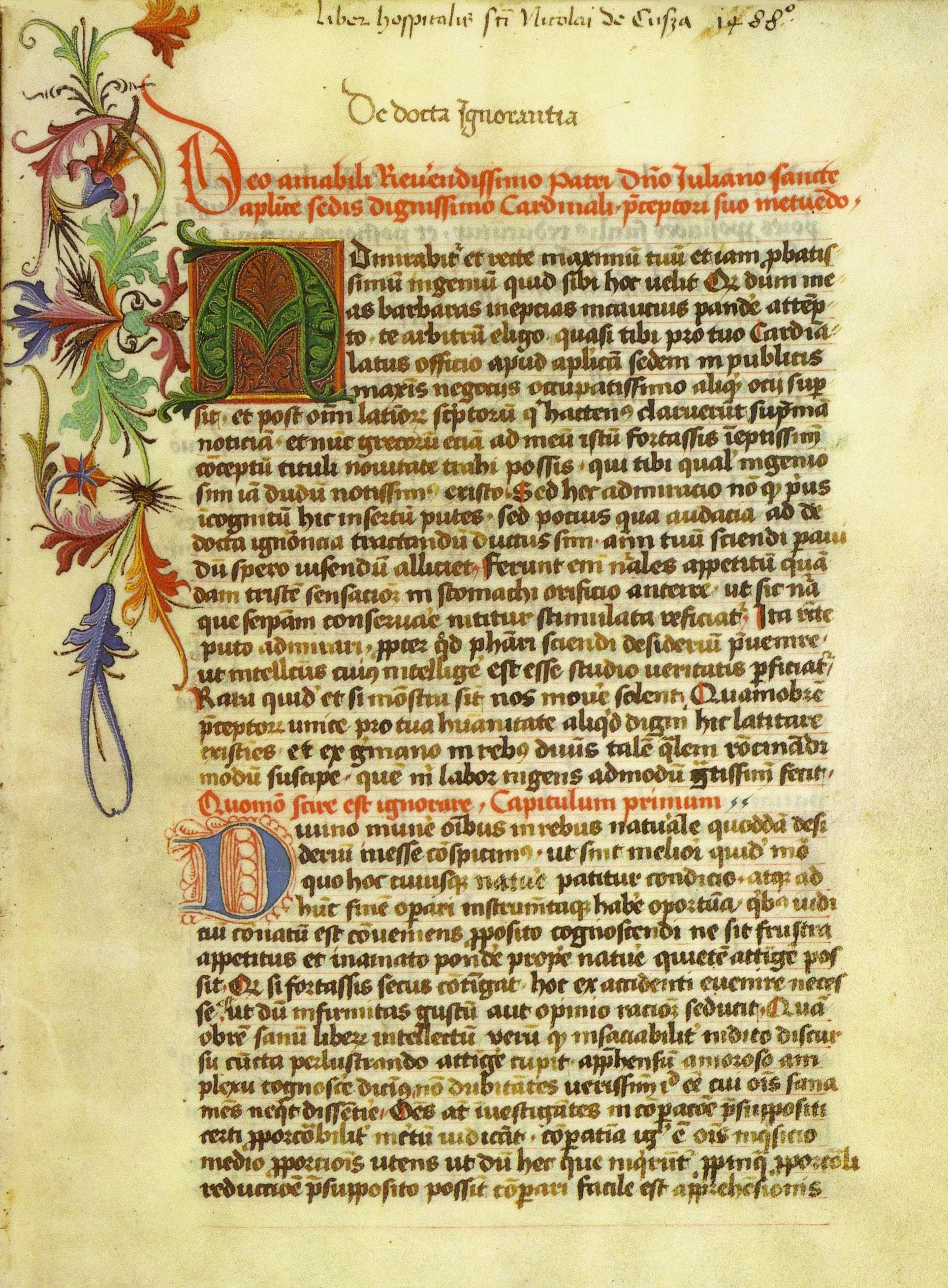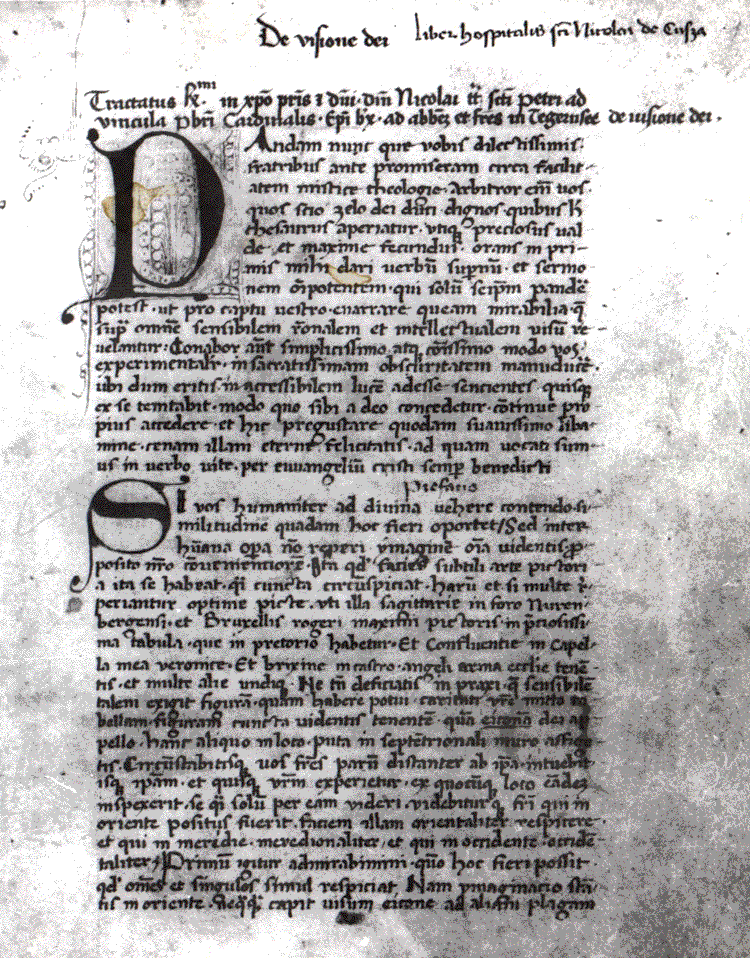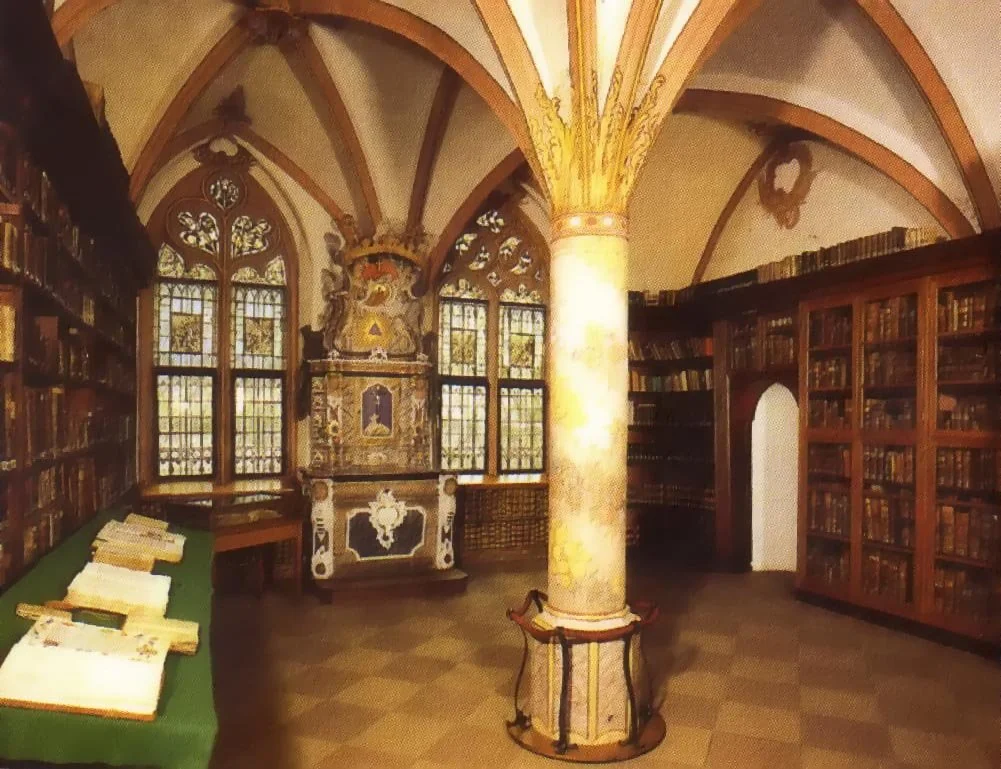In Memory of Jasper Hopkins
Ph.D. Harvard University, 1963 • M.A. Harvard University, 1959 • B.A. Wheaton College, 1958
In Memoriam
All of us in the American Cusanus Society are saddened by the recent death of Jasper Hopkins, a philosopher and historian of philosophy at the University of Minnesota for several decades. He will be remembered especially as a translator of all of Nicholas of Cusa’s theoretical works and many Cusan sermons. (Earlier he also translated all the works of St. Anselm of Canterbury.) Prof. Hopkins also published several German essays on Nicholas in MFCG on topics such as the virtues in Nicholas’s works—central topics on which there was little secondary work available, even in German. His English translations of many of Nicholas’s sermons made available to English-language readers an interesting look at Cusanus and his pastoral writing. His solid introductory essays to these translations and his monograph on Nicholas remain important interpretations, as do his other essays on Nicholas in English and German. He quickly made all his translations, essays, and other scholarly work available online, a striking example of his scholarly generosity.
I met Jasper Hopkins but once, at Peter Casarella’s Cusanus conference at Catholic University right after 9/11. We conversed over lunch, and I found him quiet, thoughtful, and interesting. His responses to our correspondence were always personable and helpful when contacted directly. Although often critical of the work of other scholars in essays on Anselm and Cusanus, if one set aside the tone to focus on the content of what he wrote, one could learn much from him. As the years went by, he seemed to mellow towards what others wrote even when he disagreed. I felt we missed a lot when he never could come to the American Cusanus Society meetings. Besides his work as a professor, essayist, and translator, Jasper Hopkins trained as a nurse late in life and worked in a local hospital. He gave the term “Christian scholar” a whole new resonance.
No one who views what he has done for English-language readers as a translator of Nicholas can be anything but grateful. I regret that I did not know him better personally, but his life and work mark a new era in Cusanus studies for English language students and scholars.
With our thanks and prayers, may he rest in peace.
—Clyde Lee Miller
Anselm of Canterbury (1033-1109), often called the Father of Scholasticism, was born in Aosta, in the Kingdom of Burgundy. Today Aosta belongs to Italy, specifically to the region of Val d'Aosta. Anselm later became prior (1063), and then abbot (1078), of the Monastery of Bec-Hellouin in Normandy, France. In 1093 he was consecrated Archbishop of Canterbury in England. As an intellectual, he is known above all for his three works the Monologion, the Proslogion, and the Cur Deus Homo.
Nicholas of Cusa (1401-1464), sometimes misleadingly referred to as the first "modern" philosopher, was born in Kues, Germany (today Bernkastel-Kues). He became a canon lawyer and a cardinal. His two best-known works are De Docta Ignorantia (On Learned Ignorance) and De Visione Dei (On the Vision of God).
Documents (Best if viewed by Adobe Acrobat Reader 4.0 or higher)
ANSELM OF CANTERBURY, English translations of :
"Some Alleged Metaphysical and Psychological Aspects of the Ontological Argument"
Augustine and Free Will
Augustine on Free Will and Predestination - missing document
NICHOLAS OF CUSA , English translations of:
De Docta Ignorantia
Cribratio Alkorani
Cusa's Last Sermons: 1457 - 1463
Translator's Intro to De Pace Fidei and Cribratio Alkorani - missing document
Cusanus and Religious Harmony - missing document
Cusa's Dialectical Mysticism
Cusa's Metaphysical Speculations: Orienting Study
Cusa's Metaphysic of Contraction
HUGH OF BALMA'S De Theologia Mystica: English translation of:
HUGO OF STRASSBURG : Compendium Theologicae Veritatis




